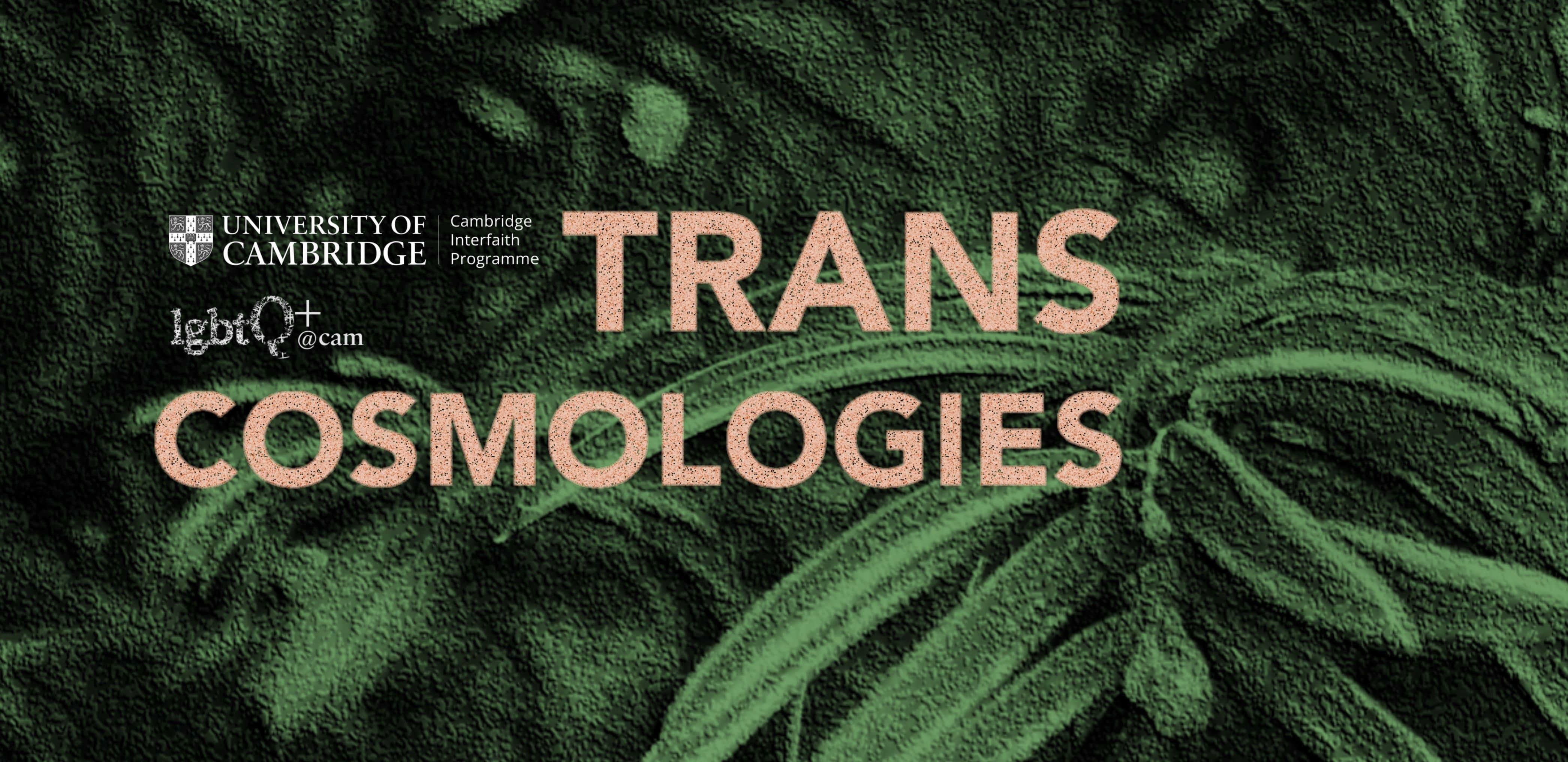
Religious imagination, rituals and sacred landscapes are potent elements shaping and being shaped by trans and gender-nonconforming individuals and communities. Yet religious institutions and sacro-political nationalist rhetoric are increasingly instrumental in the workings of transphobic (and wider anti-LGBTIQ+) violence around the world.
Trans Cosmologies, an emergent project within the framework of CIP’s Religion and Global Challenges Initiative, brings together anthropologists, theologians, artists and activists who consider the role of religion in trans lifeworlds. It builds on the core CIP concerns with religious relations, encounters and multivocality, inherently critical of hegemonic political structuring.
About the project
The Trans Cosmologies project critically addresses the increasing role of religious institutions and religio-political rhetoric in transphobic violence globally, and aims to dismantle the legitimacy of trans expulsion ideologies rooted in falsified religious histories.
The project firstly raises awareness about the diverse religiosities of trans and gender-nonconforming people and communities by creating a new public platform for anthropological, theological, historical, and artistic explorations. In so doing, the project firmly challenges the ideological suggestion that trans lives lack religious and historical depth. Rather, it shows that no history of religion can be told without the representation of trans lives, which have not only inhabited, but profoundly shaped, cosmologies and rituals across the world.
Implications
The implications of this prompt are far-reaching, as the project engages and seeks to redress the absence of trans lives in the religious studies curricula, as well as the exclusionary language and practices across religious, political, and educational institutions.
The project thus explicitly addresses the barriers faced by trans individuals within religious and secular spaces influenced by transphobic misinterpretations of religious values and histories. It also addresses the epistemic hurdles faced by staff and students in academic contexts.
Participation and impact
The project features contributions of trans, gender nonbinary, and queer academics and students. The positive impact of the project is measured through public events (workshops, exhibition, conference, open-access winter school) and widely disseminated reports, a new research network and major publications, staff-student collaboration, as well as through curriculum reform guidelines.
Scope
The scope ventures beyond religion, to think new cosmologies and possible futures, interruptions, reformulations and resistant continuities. It queries the implications of trans cosmologies for our relationship to the environment and other-than-human beings, the religious afterlives of racial and gender violence and colonial engineering, as well as the directions of personal trans spiritualities. Trans Cosmologies explores a plethora of normative and non-normative trans traditions and subjectivities, the movement towards trans theologies, the contributions of trans/feminisms and queer theory and praxis to inclusive sacred rituals, spaces, and beliefs, as well as the origins and ramifications of anti-trans religious tropes.
Team
This project is coordinated by Dr Safet HadžiMuhamedović, affiliated researcher with the Cambridge Interfaith Programme and the Faculty of Divinity.
It is also supported by the Q+ research centre, based in the Department of Sociology.
Plans are dependent on securing further funding.
Events
Below is a list of events related to Trans Cosmologies.
1: Joint event: Sacred Spaces | Sacred Time: a queer interfaith discussion (13 February 2024)
